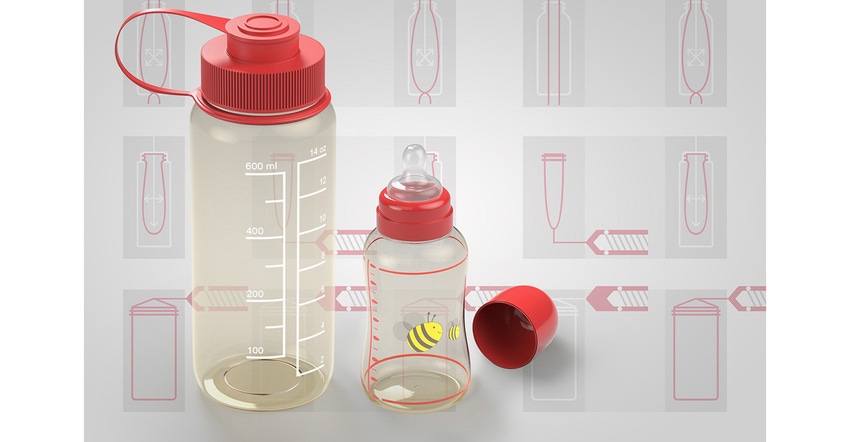BASF's Expanded PPSU Portfolio Enables Bottle Production by All Three Standard Processing Methods
The two new PPSU grades — Ultrason P 2010 and P 3010 — can be used in injection stretch blow molding, extrusion blow molding, and injection molding to manufacture bottles for adults and babies.
March 25, 2021

BASF’s polyphenylsulfone (PPSU) Ultrason P portfolio has been expanded so that it can be used to manufacture high-quality bottles by all three processing methods that are standard in the industry. The two PPSU grades — Ultrason P 2010 and P 3010 — can be used in injection stretch blow molding, extrusion blow molding, and injection molding to manufacture bottles for adults and babies that are safe to use, robust, and chemically resistant. The bottles can be produced in numerous designs, shapes, and colors.
All three processing methods benefit from the customized properties of the high-temperature thermoplastic: It contains no harmful substances, is approved for food contact, and has outstanding strength, chemical resistance, and long-term high-temperature stability up to 180oC, said BASF. Bottles made from the transparent, slightly honey-colored BASF polyphenylsulfone can easily withstand sterilization in a microwave or very hot water, regardless of the method used to manufacture them.
“The production of high-quality, safe, and stylish bottles for adults and babies presents a challenge that cannot be compared to that of conventional PET, PP, or co-polyester bottles,” said BASF’s Georg Grässel. “The processing methods all have their own specific requirements of the material used, and this is where Ultrason P has proved its value to customers in many different countries. They can choose the most suitable material from our portfolio and can also benefit from our on-site technical application support and the global availability of the different grades.”
Ultrason P 3010 is particularly suitable for the extrusion blow molding process because of its inherent high melt strength in contrast with other PPSU materials on the market, explained BASF. It allows the hot, elongated parison to remain stable even near the die, ensuring uniform blow molding.
When injection molding is used, the bottle body can be manufactured with or without a cap thread and base, which provides greater flexibility in bottle design and the method used to vent baby bottles. High-flow, low-viscosity Ultrason P 2010 is well-suited for this method, as it makes thin walls possible, even when there are long flow paths, without compromising impact properties or chemical resistance.
Injection stretch blow molding is widely used in Asia to manufacture baby bottles, according to BASF, and Ultrason P 3010 is advantageous for this process because of the rapid cycle times and exact molding of the bottle cap thread. In this process, a test tube–like parison with cap thread is produced in an injection mold, re-heated, and stretched and inflated in a blow mold that models the bottle design as a negative.
Ultrason is the trade name for BASF’s product range of polyethersulfone (Ultrason E), polysulfone (Ultrason S), and polyphenylsulfone (Ultrason P). The high-performance material is used to manufacture lightweight components for the electronics, automotive, and aerospace industries. The materials are also used in water-filtration membranes and in parts that come in contact with hot water and food. Because of their property profile, the Ultrason brands can substitute thermosets, metals, and ceramics in many applications, said BASF.
About the Author(s)
You May Also Like




